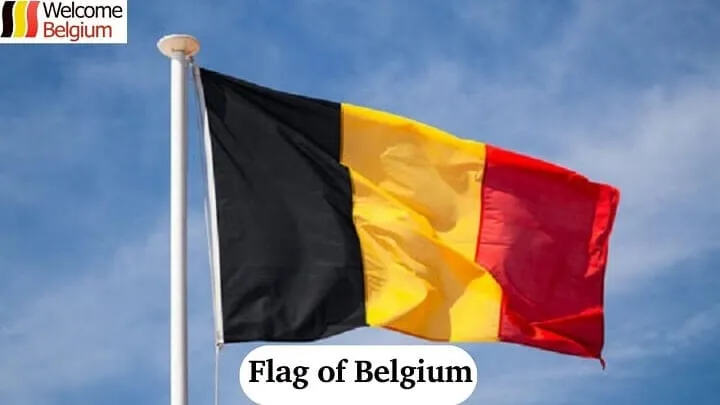A new wave of concern has emerged in Belgium: children increasingly appear in criminal cases related to terrorism. Some are very young. According to local intelligence agencies, some suspects are as young as 12 years old.
Radicalization in TikTok Style
This is not about teenagers with criminal backgrounds or contacts with the underworld. Many are ordinary schoolchildren who lacked timely support and became victims of radical online propaganda.
The spread of ideas soaked in hatred happens today on platforms where they are least expected:
- TikTok, where radical videos are disguised as motivational messages
- Discord and Telegram, where closed channels serve as recruitment spaces
- Online games with chat, where players are “secretly” fed “alternative truths”
- YouTube, where religious fanatics teach “how to become a true fighter for faith”
This form of radicalization is especially dangerous because it goes unnoticed even by parents. Algorithms push increasingly harsh content to teenagers, and isolated from real communication, children start to see extremism as normal — as a “heroic path,” a way to assert themselves or feel part of a “higher cause.”
Example:
In January 2025, Belgian police arrested a 14-year-old suspected of planning a terrorist attack on a mosque in the Molenbeek district of Brussels. According to the prosecution, the youth, holding far-right views, planned to attack during Friday prayers when the mosque is most crowded.
During a search of his home, a folding knife, a kitchen knife, computer equipment, and homemade Nazi symbols were found. The teenager was placed in a juvenile detention facility. This incident caused serious concern among Belgium’s Muslim community and highlighted the need for early detection and prevention of youth radicalization.
The most alarming thing is how easily a teenager can fall into this trap. One click on a video, one entry into a chat — and a chain begins that the child cannot escape without outside help. While adults debate freedom of speech and internet limits, new “gurus” on Telegram are already building armies of schoolchildren.
Children on the Algorithm’s Hook
According to reports from the Belgian Coordination Unit for Threat Analysis (OCAD), the age of individuals under surveillance is getting younger. Today, intelligence agencies note a trend where 12–14-year-old teenagers show active interest in extremist topics. Most of them have no criminal record and live in ordinary families.
What unites them?
Usually, it is:
- Feeling isolated or misunderstood by peers
- Difficulties at home or school
- Excessive unsupervised time online
- Low levels of critical thinking and digital literacy
In this vulnerable state, children fall under the influence of smart algorithms that do not distinguish good from evil — they simply show what triggers stronger emotions and holds attention. Radical videos, conspiracy theories, and pseudo-heroic narratives become an emotional support and seemingly logical explanation for the teenager’s inner crisis. This way, online content gradually shapes worldview — instead of support, the child receives an invitation into a dark world of ideology, where “you are either with us or against us.”
Statistics on youth radicalization in Belgium:
- 18% of threats involve minors: In 2024, the Coordination Unit for Threat Analysis (OCAD) recorded 287 threat reports, of which 18% involved minors. This is 2% higher than the previous year. Brussels Times
- One third of suspects are teenagers: From 2022 to 2024, nearly one third of suspects involved in planning violent acts in Belgium were minors. The youngest arrested was 13 years old. VRT
- Terror attack planning in Brussels: In March 2024, four teenagers aged 15 to 18 were arrested on suspicion of planning an attack at a concert hall in Brussels. Brussels Times
- Threats increased by 41%: In 2023, reports of terrorism and extremism threats rose by 41% compared to 2022, reaching 332 reports.
These figures show how serious the problem of radicalization among teenagers in Belgium has become. The growing involvement of minors in extremist groups requires not only attention from authorities but also active support from parents and society to recognize threats in time and prevent tragedies.
What should parents do?
The main thing is to stay close and listen carefully to your child. Don’t be afraid to ask questions and discuss topics that may seem difficult or uncomfortable. It is important to monitor the time your child spends online and explain how to distinguish truth from manipulation.
Instead of lessons — “holy war”
School staff report strange changes in some students’ behavior: they start rejecting the secular system, dismiss the school curriculum, refuse to communicate with classmates, and even express ideas of violence “in the name of faith.” Sometimes this end with police intervention.
Example:
In 2018, in Brussels, a 17-year-old boy noticed suspicious behavior from an acquaintance who began showing interest in extremist groups and radical ideas. Instead of ignoring it, the teenager told his parents and even contacted the police. Thanks to his courage and timely report, law enforcement was able to prevent a terrorist attack.
This case was widely discussed in the media as an example of how awareness and civic responsibility among young people can play a key role in fighting terrorism. The Belgian police stressed the importance of supporting such initiatives and developing programs aimed at involving youth in preventing radicalization.
According to sources from the security service, it is not always a direct threat. However, the worrying level of involvement requires immediate action. Otherwise, within a few years, “the boy who was just curious about Islam” might become involved in serious crime.
State response: what is Belgium doing?
The Belgian government is not turning a blind eye. Multidisciplinary teams of psychologists, social workers, and law enforcement officers have been created.
Main measures include:
- Media literacy programs in schools
- Individual support for “at-risk groups”
- Monitoring online content aimed at teenagers
- Support for parents and teachers working with “challenging” adolescents
But it’s not all smooth. Teachers admit they fear labeling a child, and social workers don’t always have enough resources to work with families.
Belgium faces a situation that a few years ago seemed unimaginable: children in primary and secondary schools are suspected of radicalization. A new era requires new approaches. If before the threat was returning militants, now it is schoolchildren with a phone in hand and a TikTok feed mixed with hateful ideology.
What should parents do?
Radicalization of teenagers is a serious problem, but parents can play a decisive role in preventing it. Here are some important recommendations to help keep your child safe and support them during difficult times.
- Pay attention to changes in behavior
Sudden changes—refusing to communicate with friends, withdrawal, aggression, loss of old interests—can signal problems. Don’t ignore these signs, try to understand what’s behind them. - Maintain open dialogue
Try to be not only a parent but also a friend. Create an atmosphere where your child can openly talk about their feelings and questions without fear of judgment. - Monitor internet activity
Know which websites, apps, and chats your child visits. Many radical ideas spread through social media and messengers. Use parental controls and discuss the risks related to the internet with your child. - Develop critical thinking and digital literacy
Explain how to recognize fake news, manipulation, and propaganda. Help children learn to analyze information instead of accepting it at face value. - Seek professional help if needed
If you notice worrying signs, don’t hesitate to contact psychologists, school counselors, or social services. Early intervention can prevent serious consequences. - Encourage participation in social and cultural activities
Help your child find hobbies, sports, or clubs of interest. Social engagement reduces the risk of isolation and makes teenagers less vulnerable to radical ideas.
In conclusion, the role of parents in countering radicalization cannot be overstated. Attentiveness, openness, and timely intervention can not only protect a child from dangerous ideas but also help them find their own path in life. With family support, teenagers get a chance to grow up in a safe and healthy environment where violence or extremism is not an option.



